Related Research Articles

West Florida was a region on the northern coast of the Gulf of Mexico that underwent several boundary and sovereignty changes during its history. As its name suggests, it was formed out of the western part of former Spanish Florida, along with lands taken from French Louisiana; Pensacola became West Florida's capital. The colony included about two thirds of what is now the Florida Panhandle, as well as parts of the modern U.S. states of Louisiana, Mississippi, and Alabama.

The United States Senate Committee on Foreign Relations is a standing committee of the U.S. Senate charged with leading foreign-policy legislation and debate in the Senate. It is generally responsible for authorizing and overseeing foreign aid programs; arms sales and training for national allies; and holding confirmation hearings for high-level positions in the Department of State. Its sister committee in the House of Representatives is the Committee on Foreign Affairs.

The Territory of Florida was an organized incorporated territory of the United States that existed from March 30, 1822, until March 3, 1845, when it was admitted to the Union as the State of Florida. Originally the major portion of the Spanish territory of La Florida, and later the provinces of East Florida and West Florida, it was ceded to the United States as part of the 1819 Adams–Onís Treaty. It was governed by the Florida Territorial Council.
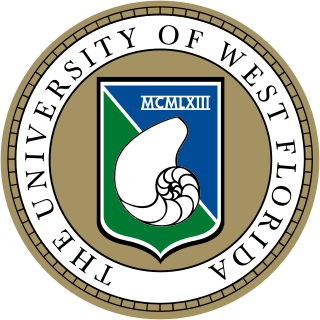
The University of West Florida is a public university in Pensacola, Florida, United States. Established in 1963 as a member institution of the State University System of Florida, the University of West Florida is a comprehensive research university without faculties of law or medicine, a designated space-grant institution, and sits on the third largest campus in the State University System, at 1,600 acres (650 ha). The university's mascot is Argie the Argonaut and its logo is the chambered nautilus.
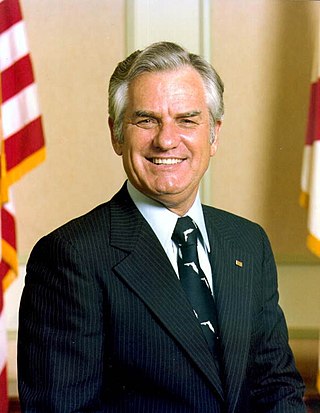
John Wayne Mixson was an American politician and farmer in Florida who served as the 12th lieutenant governor of Florida from 1979 to 1987, and as the 39th governor of Florida for three days in January 1987. Mixson served in the Florida House of Representatives from 1967 to 1978 prior to being elected as lieutenant governor. He was a lifelong conservative Democrat, and though he served in the Florida legislature and as Florida's lieutenant governor as a member of that party, he supported a mix of Democratic and Republican candidates for various state and national offices after retiring from elected office.

The United States Senate is the upper chamber of the United States Congress, which along with the United States House of Representatives—the lower chamber—comprises the legislative branch of the federal government of the United States. Like its counterpart, the Senate was established by the United States Constitution and convened for its first meeting on March 4, 1789 at Federal Hall in New York City. The history of the institution begins prior to that date, at the 1787 Constitutional Convention, in James Madison's Virginia Plan, which proposed a bicameral national legislature, and in the controversial Connecticut Compromise, a 5–4 vote that gave small-population states disproportionate power in the Senate.

The Pensacola Museum of History at the University of West Florida, formerly the T. T. Wentworth Jr. Florida State Museum, is a museum of history located at 330 Jefferson Street in the Plaza Ferdinand VII in Pensacola, Florida. It is part of the Historic Pensacola Village museum complex. The building, reminiscent of the Alamo mission style, was built in 1907 as the Pensacola City Hall and served as such until 1985 when the present city hall was built at 180 Governmental Center, also known as 222 West Main Street. In 1989, the building was listed as the Pensacola City Hall in A Guide to Florida's Historic Architecture, published by the University of Florida Press.
The history of Pensacola, Florida, begins long before the Spanish claimed founding of the modern city in 1698. The area around present-day Pensacola was inhabited by Native American peoples thousands of years before the historical era.

The Florida Legislative Investigation Committee was established by the Florida Legislature in 1956, during the era of the Second Red Scare and the Lavender Scare. Like the more famous anti-Communist investigative committees of the McCarthy period in the United States Congress, the Florida committee undertook a wide-ranging investigation of allegedly subversive activities by academics, Civil Rights Movement groups, especially the NAACP, and suspected communist organizations.
Martha Dunagin Saunders is an American professor and academic official. A native of Mississippi, she earned her Bachelor of Arts in French from the University of Southern Mississippi; her Master of Arts in journalism from the University of Georgia; and her Doctor of Philosophy in communication theory and research from Florida State University. Saunders has served as the chancellor of the University of Wisconsin-Whitewater and the ninth president of the University of Southern Mississippi (USM) where she replaced embattled president Shelby F. Thames. She is currently serving as president of the University of West Florida in Pensacola, Florida.
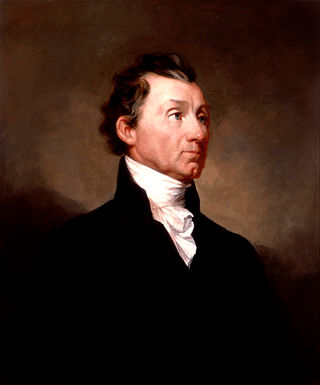
The presidency of James Monroe began on March 4, 1817, when James Monroe was inaugurated as President of the United States, and ended on March 4, 1825. Monroe, the fifth United States president, took office after winning the 1816 presidential election by an overwhelming margin over Federalist Rufus King. This election was the last in which the Federalists fielded a presidential candidate, and Monroe was unopposed in the 1820 presidential election. A member of the Democratic-Republican Party, Monroe was succeeded by his Secretary of State John Quincy Adams.
Judith Ann Bense is an American academic, Florida historical archaeologist, and a former president of the University of West Florida. She is also the chairwoman of the Florida Historical Commission at the University of West Florida, she served as a faculty member and department chair in the anthropology program, which she started at the school. In 2008, she started her 7-year term as president of the university. Prior to this, she was the executive director of anthropology and archaeology at UWF. During her career, she was fundamental in drafting the legislation to create the Florida Public Archaeology Network (FPAN).

Dave Murzin is a realtor and former Republican member of the Florida House of Representatives. He was born in Louisville, Kentucky.

The West Florida Argonauts are the athletic teams that represent the University of West Florida, located in Pensacola, Florida, in intercollegiate sports at the Division II level of the National Collegiate Athletic Association (NCAA), primarily competing in the Gulf South Conference (GSC) since the 1994–95 academic year. The Argonauts previously competed in the Southern States Conference of the National Association of Intercollegiate Athletics (NAIA) from 1974–75 to 1993–94, with a brief hiatus of dropping its athletics program from 1976–77 to 1979–80.

Pete Shinnick is an American college football coach and former player. He is the head football coach at the Towson University in Towson, Maryland. As the head coach of West Florida, Shinnick won the school's first football national championship in 2019. The football team began play in 2016. 2017 was a big year for Shinnick, as he led the University of West Florida Argonauts to the NCAA Division II playoffs, making them the fastest team to do so. He broke the record he held at the University of North Carolina at Pembroke, that being three years. Shinnick also won the 2017 AFCA Region 2 Coach of the Year. He later won the 2017 AFCA Division II Coach of the Year. On December 21, 2019, Shinnick won the NCAA D-II National Championship with the UWF Argos in just the program's 4th year of existence.
Glenn Durland Paige was an American political scientist. He was Professor Emeritus of political science at the University of Hawaiʻi and Chair of the Governing Council of the Center for Global Nonkilling. Paige is known for developing the concept of nonkilling, his studies on political leadership, and the study of international politics from the decision-making perspective with a case study of President Harry S. Truman's decision to involve the United States in the Korean War.
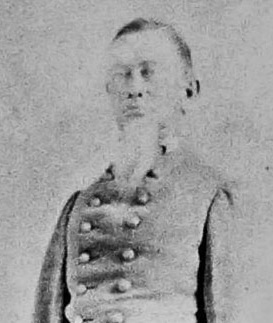
The 1858 United States House of Representatives election in Florida was held on Monday, October 4, 1858 to elect the single United States Representative from the state of Florida, one from the state's single at-large congressional district, to represent Florida in the 36th Congress. The election coincided with the elections of other offices, including various state and local elections.
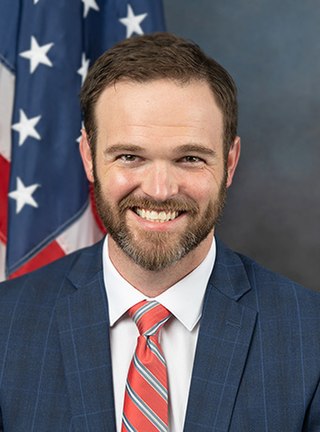
Robert Alexander Andrade is a Republican member of the Florida Legislature representing the state's 2nd House district, which includes parts of Escambia and Santa Rosa counties.

Michelle Salzman is a Republican member of the Florida House of Representatives representing the state's 1st District, which includes the northern portion of Escambia County. She was elected to the seat in November 2020, after she defeated Democratic candidate Franscine Mathis in the general election. Prior to that she defeated incumbent Mike Hill in the Republican primary in August 2020.
References
- ↑ "about UWF". Pensacola, Florida: University of West Florida. Archived from the original on April 5, 2004.
- ↑ "Marion Viccars Award" (PDF). The Fountain. 40 (10): 5. Archived from the original (PDF) on August 30, 2006.
- ↑ "UWF - President's Division - Presidents of UWF July 1964 - 2008<". Pensacola, Florida: University of West Florida. Archived from the original on January 15, 2013.
- ↑ Robinson, James Arthur (1965). Decision-making in Congress. Washington, D.C.: American Enterprise Institute for Public Policy Research. OCLC 51526315.
- ↑ Robinson, James Arthur (1973). State legislative innovation. New York: Praeger. OCLC 251944194.